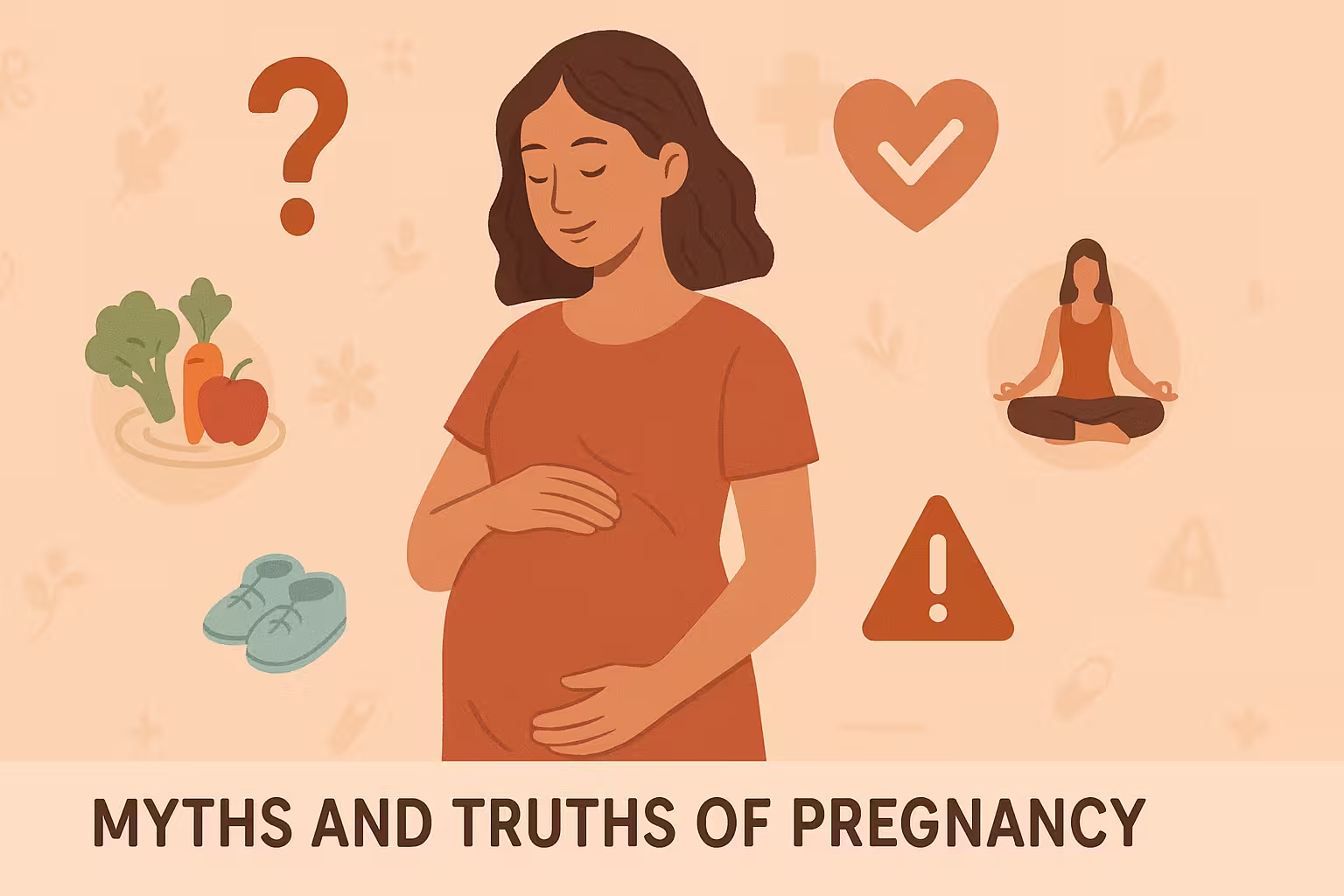Physical Address
304 North Cardinal St.
Dorchester Center, MA 02124
Physical Address
304 North Cardinal St.
Dorchester Center, MA 02124

Pregnancy is a transformative journey filled with joy, anticipation, and a flood of advice from every corner. While much of this guidance comes with good intentions, it is often clouded by myths and misinformation that can lead to confusion and anxiety for expectant mothers. This article aims to debunk common pregnancy myths, present medically backed facts, and provide practical tips for ensuring a safe and healthy pregnancy.
Ensuring maternal and fetal well-being throughout pregnancy is critical for both short-term and long-term health outcomes. During this period, a woman’s body undergoes dramatic physical, hormonal, and psychological changes. Appropriate care, lifestyle choices, and awareness of potential risks can reduce the chances of complications such as preterm birth, low birth weight, and gestational diabetes.
Read Also: Indian Air Force Medical Assistant Recruitment 2025 – Complete Details for Intake 02/2026
Fact: While caloric needs increase slightly during pregnancy, doubling food intake is not necessary. Overeating can lead to unhealthy weight gain and gestational diabetes. According to the American College of Obstetricians and Gynecologists (ACOG), an additional 340-450 calories per day during the second and third trimesters is sufficient.
Fact: Exercise is not only safe but also beneficial in most pregnancies. ACOG recommends at least 150 minutes of moderate-intensity aerobic activity per week unless medically contraindicated. Benefits include reduced back pain, improved sleep, lower risk of gestational diabetes, and faster postpartum recovery.
Fact: This myth has no scientific basis, though a small 2006 study from Johns Hopkins University found a possible correlation. However, heartburn in pregnancy is primarily due to hormonal changes and pressure from the growing uterus on the stomach.
Fact: Most research indicates that dyeing hair during pregnancy, especially after the first trimester, is safe. The amount of chemical absorbed through the scalp is minimal. However, for extra caution, opt for highlights or natural/plant-based dyes.
Fact: Not all seafood is harmful. Low-mercury fish such as salmon, sardines, and tilapia are excellent sources of omega-3 fatty acids, which support fetal brain and eye development. Pregnant women should avoid high-mercury fish like shark, swordfish, king mackerel, and limit tuna intake.
Fact: In most uncomplicated pregnancies, sex is completely safe and has no risk of harming the baby. However, women with placenta previa, risk of preterm labor, or vaginal bleeding should consult their doctor.
Fact: Nausea and vomiting can occur at any time of day. It usually begins in the first trimester and subsides by the second. In severe cases (hyperemesis gravidarum), medical intervention may be needed.
Fact: Sleeping on the back becomes a concern mostly in the second and third trimesters, as it can compress major blood vessels and affect circulation. Left-side sleeping is generally recommended for optimal blood flow, but occasional back sleeping is usually harmless in early pregnancy.
Mental well-being is just as important. Hormonal shifts can cause mood swings, anxiety, or depression. Open communication with healthcare providers and emotional support from family can make a significant difference.
Navigating pregnancy involves understanding what truly matters and discarding the noise of unfounded myths. Accurate information, regular medical care, and mindful lifestyle choices can empower mothers-to-be to ensure a healthy pregnancy and a safe delivery.
Read Also: How to Perform Shravan Somvar Puja? Complete Guide, Rituals, and Significance